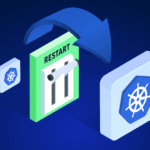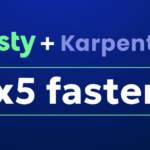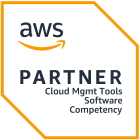
Why Covid 19 is the ideal time to automate Cloud Cost Optimization

CEO and Co-founder
During economically challenging times, the natural tendency of many companies is to bring more operations in house and cut back on external tools and vendors. Revenue may be taking a hit, and venture capitalists are holding onto their wallets. It’s understandable to think, What better way to extend the run rate than to reduce dependency on external tools?
And to be sure, there are circumstances in which moving operations in house may be desirable. But in nearly every situation, cloud cost management is one area that produces far better savings in a more efficient way when it’s automated.
Here are the main reasons why cost-conscious businesses (i.e., all businesses today) should prioritize automating their cloud costs –– especially in light of the coronavirus crisis.
Maximize Cloud Cost Savings
Even the most skilled DevOps team can’t manually save as much of their cloud bill as automated solutions. Manual work requires collaboration across multiple teams and prediction of usage based on complicated and dynamic factors such as:
- Seasonality
- Business growth
- Technological innovation
- Regulations
- Unforeseen circumstances
Furthermore, DevOps teams attempting to manually manage their cloud costs must accurately:
- Map the infrastructure
- Identify the business unit responsible
- Receive feedback on predictions of their usage
- Allocate budgets
- Execute the purchasing of cloud commitments
With all these unpredictable and constantly evolving variables, it’s no wonder manual work almost always leaves money on the table.
Furthermore, the standard minimum duration of commitments is 12 months, during which time so much can change –– especially in today’s uncertain world.
And while most DevOps teams already rely on different tools to support their cloud cost management, they’re still missing out on often very significant savings, as none of their existing tools offer the crucial ML-powered automation component.
As companies benefit from the elasticity of the cloud and the ability to scale their infrastructure up and down, many of the cost-optimization decisions that need to be made require real-time data, and not a post-mortem report.
In contrast to manual work using rudimentary tools, next-generation cloud cost management solutions don’t rely on the cost and usage report (CUR), and are able to make highly accurate, ML-based decisions to maximize cloud cost savings.
Free engineering resources
The coronavirus means DevOps teams are shifting their attention to new challenges that didn’t exist when people were working face to face. In many cases, all company employees are now working from home, which means DevOps have to support them virtually. New responsibilities including giving employees access to production from home environments, and having to fix production issues remotely if and when they arise.
On top of these new role-specific issues, DevOps are contending with the universal challenge of working from home with spouses, children, roommates, or pets requiring attention, as well as the general stress of living and working under a pandemic.
In the midst of all these new challenges, optimizing cloud costs may fall to the wayside. Under normal circumstances, automated cloud cost management tools are able to save more on cloud costs with no time wasted. Under these abnormal circumstances, when DevOps’ time is more precious than ever, the time-savings benefits of an automated platform cannot be overstated.
Adapt easily to the end customer’s behavior
We’re seeing that various industries such as travel tech are significantly reducing their workloads due to new limitations brought about by the pandemic. Meanwhile, those same limitations are a boon for other industries such as video conferencing, which are increasing their workloads to accommodate customers’ new remote routines.
All this volatility is impossible to accurately predict and act on manually. For that reason, a cloud cost management solution that can automatically adjust businesses’ commitments to their cloud provider is essential. Companies can easily expand and reduce workloads even if their business needs suddenly change. As businesses struggle to anticipate what the future holds due to the coronavirus, automation can at least provide peace of mind in the area of cloud cost management.
Now more than ever, next-generation cloud cost management is indispensable
COVID-19 has transformed our day-to-day life, from the way we communicate to the way we consume. It also impacts service providers. Some companies are seeing a significant decline in their business usage, while others see rapid growth. Due to their limitations, cloud providers are not always able to properly address these changing needs.
While different industries see their cloud usage being impacted in different ways from the coronavirus crisis, everyone’s goal is to increase the cost-efficiency of their consumption –– whether it’s increasing or decreasing.
To achieve that efficiency, companies need an automated machine-learning solution that will help them adjust to this constantly shifting reality. These next-generation solutions are able to look at companies as individual entities while maintaining a broader perspective. Thanks to real-time capabilities, they can factor into their decisions a multitude of rapidly changing variables that no human can take into account.
Zesty’s solution for automated cost optimization
Zesty automates cloud cost management through real-time monitoring of companies’ cloud infrastructure. The solution proactively adjusts our customers’ commitments to their actual usage by leveraging the RI marketplace. The result is maximized savings, with zero engineering effort or architecture changes required.
Companies such as Armis, a leading IoT security company, have saved over 40% in cloud costs annually using Zesty’s cloud cost optimization solution.
Learn more about how you can start slashing your cloud costs within minutes of signing up with Zesty. Schedule a demo
Related Articles
-
How we cut Kubernetes costs by half at Wildflower
September 30, 2025 -
 Why it’s time to get off the manual Kubernetes optimization treadmill
Why it’s time to get off the manual Kubernetes optimization treadmill
August 14, 2025 -
 Zesty now supports In-Place Pod Resizing for Seamless, Real-Time Vertical Scaling
Zesty now supports In-Place Pod Resizing for Seamless, Real-Time Vertical Scaling
July 30, 2025 -
 The endless cycle of manual K8s cost optimization is costing you
The endless cycle of manual K8s cost optimization is costing you
July 2, 2025 -
 This is the #1 cloud budget killer (and it’s easier to fix than you think)
This is the #1 cloud budget killer (and it’s easier to fix than you think)
June 16, 2025



